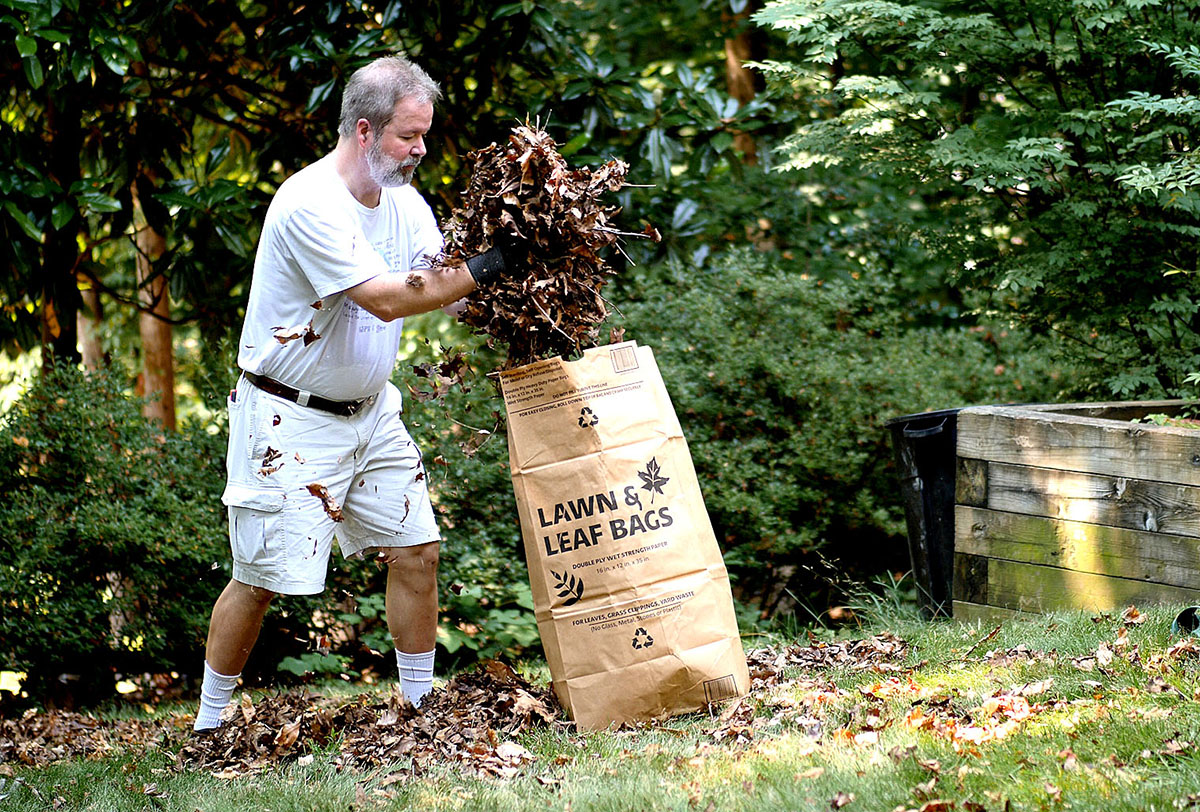Paper Bags Will Soon be Required for Yard Waste

Beginning Oct. 1, the Prince William Landfill Complex, at 14811 Dumfries Road, and the Balls Ford Road Composting Facility, at 13000 Balls Ford Road, will no longer accept yard waste in plastic bags.
“Residents can still bring yard waste to the facilities, but they cannot dispose of it in plastic bags,” said Prince William County Solid Waste Division Spokeswoman Deborah Campbell. “They’ll need to empty the plastic bags into the yard waste bins and dispose of or reuse the bags.”
Instead of plastic bags, people can use paper yard waste bags that are readily available at most big box, home improvement, hardware and some grocery stores. Paper bags decompose along with the yard waste that the composting facility uses to make compost. Paper bags save the facility the task of separating plastic from yard waste and improve the quality of the compost. “They do their best at the composting facility to try and screen out the plastic, but as you can imagine, the plastic breaks up into little pieces. It’s impossible to get all of that plastic out of the final product,” Campbell said.
People can also collect their yard waste in personal containers and dump them in the yard waste bins at the landfill, or the composting facility. Trash haulers will pick up yard waste in paper yard waste bags or personal containers that are labeled “yard waste.” Bags and containers should weigh no more than 50 pounds unless the trash hauler uses mechanical equipment to lift the containers, Campbell said.
The composting facility processes about 6,700 tons of yard and food waste each month, or roughly 80,000 tons annually, said Rich Riedel, the marketing manager for Freestate Farms, the contractor that oversees operations at the composting facility for the county. The new yard waste program should provide up to 15 years of additional landfill life.
Paper bags are also good for the environment. “Single-use disposable plastics pose a severe and growing threat to fish and wildlife, and to the health of the Chesapeake Bay,” Riedel said. “While we take a variety of steps at our facility to remove non-compostable items, like plastic bags, the best way to prevent non-compostable items from polluting our community is by not using them in the first place. This helps protect all of the places that we use compost – our personal plant and vegetable gardens, local farms, and bioretention facilities – landscapes specially designed to reduce water pollution and protect the water quality of the Chesapeake Bay.”
The new yard waste collection program will run March through December annually. It also includes curbside collection of Christmas Trees the first two full weeks of January. The diversion of yard waste from the landfill to the compost facility should provide up to 15 years of additional landfill life.
See a video on yard waste preparation here.